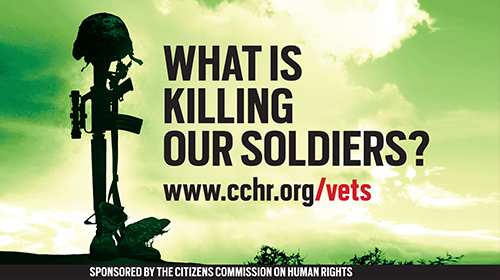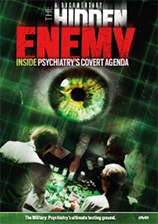By CCHR International, Mental Health Industry Watchdog, July 29, 2022. With headline news covering the recent University College London study debunking a long-marketed unproven theory that a “chemical imbalance in the brain” causes depression, mental health industry watchdog Citizens Commission on Human Rights International urges consumers, policy-makers and media to take advantage of its clearinghouse
An Additional Reference: Marketing Of Chemical Imbalance Myth May Have Led To Untold Damage & Lost Lives
Mental Health Watchdog Warns Against Psychotropic Drug Self-Care During Pandemic
Based on documented studies, the Florida chapter of the Citizens Commission on Human Rights (CCHR), a watchdog organization that investigates and exposes abuse within the mental health industry, is warning the public about the dangers of psychotropic drug prescriptions being doled out under the guise of self-care during the current pandemic. Mental health is often branded as
Child Drugging Should Be the Last Resort Claims CCHR
New Washington State code protects the rights of children and families SEATTLE, February 27, 2019 (Newswire.com) – The Seattle chapter of Citizens Commission on Human Rights (CCHR) sponsored a community forum at the Church of Scientology Seattle on alternatives to psychiatric drugging of minors in Washington State and to inform parents of a new code revision put in place to safeguard
Study: ADHD Drugs Can Cause Psychosis in Children
Study shows 400% increase in psychotic episodes for children taking ADHD drugs By Kelly Patricia O’Meara Published by CCHR International The Mental Health Industry Watchdog September 21, 2016 In light of growing studies exposing the serious risks associated with ADHD drugs, the Citizens Commission on Human Rights cautions parents to arm themselves with the facts
Involuntary Commitment Part III: A System Built on Lies
Involuntary commitment and forced psychiatric drugging are based on several lies and misrepresentations, all of them broadly and continuously disseminated for decades by the psychiatric industry and its allies. Among them are the following: Mental and emotional problems are best understood as the result of abnormal brain chemistry (imbalances in neurotransmitters). Antipsychotic drugs are substantially
Statistics show 6,000 Washington State babies-toddlers are on psychiatric drugs
Watchdog Says Report of 6,000 Toddlers on Psychiatric Drugs Tip of the Iceberg—23,764 0-5 year olds and 208,632 0-17 year olds are being Prescribed Psychiatric Drugs in Washington State A new report issued by the Centers for Disease Control and Prevention (CDC) regarding children being prescribed psychiatric drugs in the U.S. provides us with the
Involuntary Commitment in Washington State – Part II
In Part 1 of this series on involuntary commitment we reviewed the criteria under which a person can be involuntarily committed. Broadly speaking, the criteria – showing a “substantial likelihood of serious harm” or “gravely disability” – define individuals who are considered mentally ill and have engaged in behavior which suggests they are a danger
Involuntary Commitment in Washington State – Part 1
The laws governing involuntary commitment in Washington State are lengthy and complex. Understanding the law requires 1) knowing a few basic definitions and 2) learning the legal process by which someone can be committed. This first article describes the process by which an individual can initially be taken into custody by the state and involuntarily
Opposition to Involuntary Commitment
Commitment laws are a deprivation of human and constitutional rights inflicted on a person said to be mentally ill. They have been used for every wrong reason: financial, sexual, business advantage, inheritance, and even political suppression. Once committed and declared incompetent the person can lose the right to vote, drive a car, join the military,
Why should Electrochock Treatment (aka ECT) be banned?
Very simply, electroshock destroys minds and kills. Woman and the elderly are the key targets for psychiatrists administering electroshock with the death rate among the elderly being as high as 1 in every 200. And in a 1993 Texas government report, it was found that one in 213 patients had died within two weeks of




 Today, with militaries of the world awash in psychiatry and psychiatric drugs, 23 soldiers and veterans are committing suicide every day. Psychiatrists say we need more psychiatry.
Today, with militaries of the world awash in psychiatry and psychiatric drugs, 23 soldiers and veterans are committing suicide every day. Psychiatrists say we need more psychiatry. It is psychiatry’s Diagnostic and Statistical Manual of Mental Disorders, and it is the engine that drives a $330 billion psychiatric industry.
It is psychiatry’s Diagnostic and Statistical Manual of Mental Disorders, and it is the engine that drives a $330 billion psychiatric industry. Psychiatrists claim their drugs are safe for children?
Psychiatrists claim their drugs are safe for children?